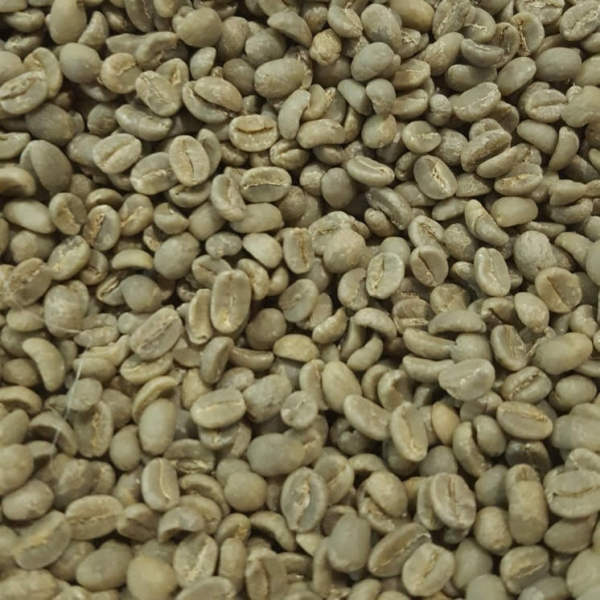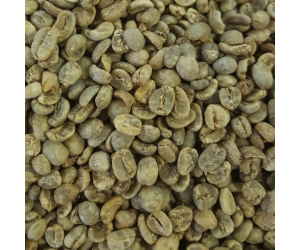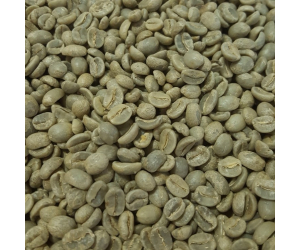Kenyan AA Green Coffee Beans (Not Roasted)
Kenyan AA Green Coffee Beans in Bulk (Not Roasted) Sold in 1 pound (16 oz) increments.
Kenya is a country located in Africa. The capital of Kenya is Nairobi. The region has the high altitude areas that are conducive to growing the Arabica coffee plants. They also receive the perfect amount of rainfall each year to properly grow the plant without endangering the fruit.
The first coffee production in Kenya happened around 1893.
Kenya sees their coffee plants flower twice a year after the rains that come in March or April and then again after the rainy season that ends around October. This allows Kenya to produce about one million bags of coffee each year.
How are Kenya Coffee Beans Processed?
The majority of Kenya coffee beans are wet processed. During the harvest only the ripest of coffee cherries are harvested and then the cherries are washed so that the skin and pulp of the fruit is separated from the bean or seed inside the fruit.
Once the bean is removed from the cherry it has a film or slimy coating on it that is called mucilage. The beans are soaked for a period of 24 to 72 hours so that this mucilage can be washed off of the beans.
The beans are then allowed to dry in the sun and they turn the familiar bluish green color that we associate with coffee beans.
Coffee Grading in Kenya
- Kenya E (Elephant Bean)
The elephant grade coffee beans are the largest coffee beans. These beans are twins inside one coffee cherry. After being separated the seeds have noticeable “ears” where they were once conjoined twins.
- Kenya PB (Peaberry)
The Peaberry is a single seed inside a coffee cherry. Some say that the peaberry produces more intense flavors because the flavor and characteristics of the seed were not distributed amongst multiple seeds.
10% of the coffee beans from Kenya are peaberry seeds.
- Kenya AA
Kenya AA beans are considered to be top quality coffee beans. These beans are all grown at elevations of no less than 6,000 feet above sea level. These beans are known for producing consistent coffee with no foul odors or foul flavors.
- Kenya AB
The A grade coffee beans are sorted using a 6.8mm screen. The B grade coffee beans are sorted using a 6.2mm screen. The AB grade is a combination of both grade A and grade B beans.
Even though this coffee has a mixed size bean it is considered to be a premium coffee that produces excellent brews.
- Kenya C
The Kenya C grade beans are the thinnest and smallest of the Grade B coffee beans.
- Kenya TT
When using air extraction to separate the grades of coffee beans the TT are the lightest of the beans.
- Kenya T
The beans in the Kenya T grade are broken, deformed, thin, small, or they are just chipped pieces of the grade C beans.
- Kenya MH/ML
The Kenya MH/ML grade is made up of beans that fell naturally from the coffee plant before they were fully ripened. This grade of coffee bean is generally sour and not attractive.
The coffee beans are also given a numerical grade of one to ten. One is the best beans with the most flavor and ten is the worst beans who have the least flavor.
What to expect from Kenya AA Grade Green Coffee Beans
You can expect the highest quality beans. All of the beans that made this grade were grown in high elevations and must be uniform in size.
The AA grade beans produce a crisp and refreshing drink with a perfect balance between the acidity and the undertones of passion fruit and wine. This grade of coffee is considered to be one of the world’s finest gourmet coffees.
When you brew coffee using these beans you can expect consistency in flavor, aroma, fragrance and body.







